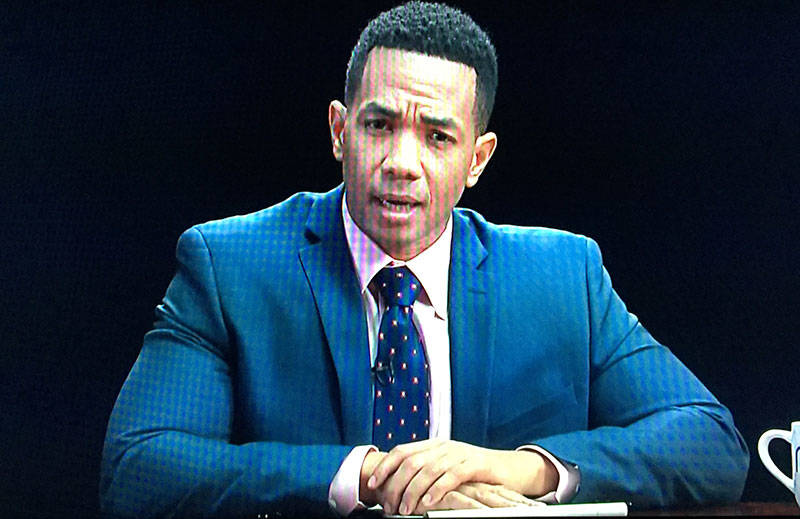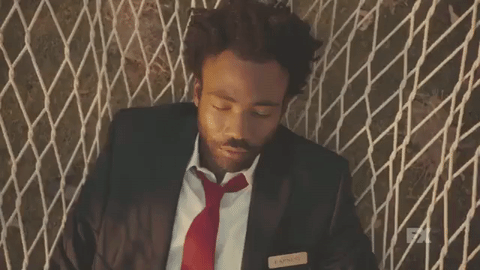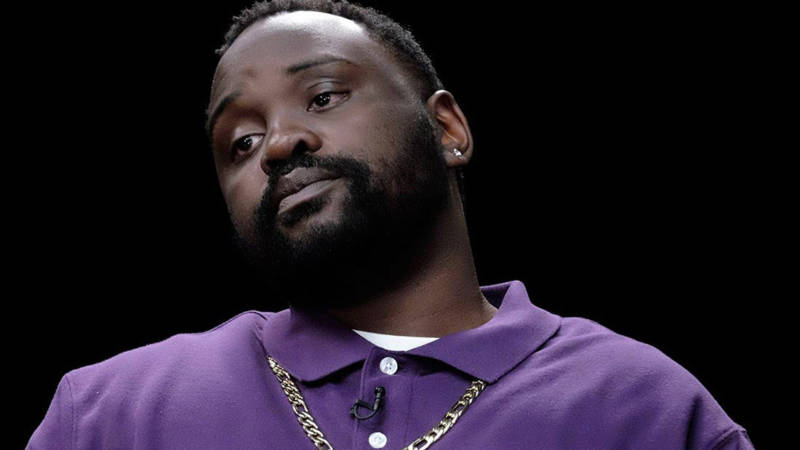Then the cereal commercial: an animated 1990s throwback to the Trix rabbit, in this case portrayed by a wolf hiding in Egyptian mummy wear, trying to steal bowls of Coconut Crunchos from three kids. Soon, he's thrown to the ground by a police officer, who immediately barks "stop resisting." The commercial unfolds in the sadly predictable way of the kids protesting the officer's treatment, filming the arrest, and watching as the wolf cries mea culpas like "I'm just hungry, man! They don't let wolves in stores!" and "I could be eatin' these kids! But I'm out here eatin' cereal!"
After a cheerful reminder that Coconut Chrunchos are part of this balanced breakfast, we're back to Montague, the talk show-within-a-sitcom-that's-becoming-more-like-a-new-paradigm-of-woke-TV-by-the-second.
The issue under "discussion" on Montague is trans rights, debated between a passionate Berkeley-mom-type author and upcoming rapper Paper Boi, one of Atlanta’s main characters, who's recently tweeted his lack of attraction toward Caitlyn Jenner. Paper Boi is woefully unprepared, thinking he'd be paid for the appearance, and the discussion goes nowhere.

But Montague’s second segment pivots into another issue about identity, concerning a "trans-racial" young black man who comes to realize that he is, inside, a 35-year-old white man. He plays golf, wears khakis, studies craft beer, and prepares for his reassignment procedure.
Hold up, I can hear you saying. Is this show really conflating gender identity with race identity? Are they really going there?
Well, yes and no. While the Don Lemon host tries to uphold the comparison, the conceit quickly falls apart. If you remember Rachel Dolezal's defense of portraying herself as black, you realize the absurdity of claiming to be "trans-racial" under the security of the public's ongoing acceptance of trans issues. We've been here before.
And then the entire idea of rational public discourse crumbles: the "trans-racial" kid blurts out that he's against same-sex marriage and transgender rights, the Berkeley mom starts agreeing with Paper Boi, the host buries his head in his hands, and Montague ends.

Sure, the episode might've been designed solely for water-cooler discussion the next day, but I still felt like I saw TV history in the making, or at least the dawn of a new era for Atlanta, a show that increasingly deviates from its story, or really, any rules at all. Earlier this month, the show presented Justin Bieber as a black teenager with no explanation; the past two episodes of Atlanta haven't even seen a trace of its so-called main character, Earn Marks, played by the show's creator Donald Glover.
In his hip-hop career as Childish Gambino, Glover upends rap tropes and brings them into the internet age. On Community and in an HBO standup special, he flexed his comedic skills. He recently debuted his upcoming Afrofuturistic album in a no-cell-phones campout in the desert that had everyone talking.
But Atlanta is on another level. FX is obviously giving Glover free rein to do whatever he wants with the show, and it's going to be fascinating to watch where he takes it from here.





